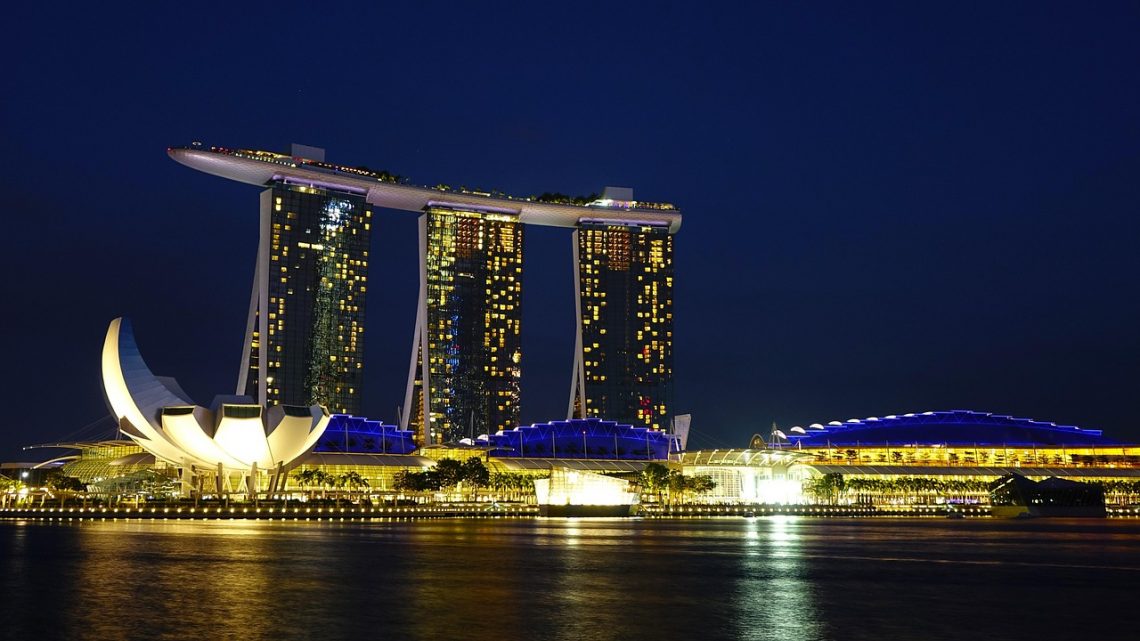
Moving to Singapore City in 2025: The Ultimate Expat Guide to Life in the Lion City
Singapore City is one of the world’s most popular destinations for professionals, students, and families relocating abroad. Known for its vibrant economy, world-class infrastructure, and multicultural community, the city-state has long been a hub for international business and expat life.
If you are considering moving to Singapore, this guide will take you through the essentials, from securing a visa to finding housing, schools, healthcare, and adapting to local culture.
Why Move to Singapore?
Singapore consistently ranks among the top expat-friendly cities in the world. Some of the main reasons people choose to relocate here include:
- A thriving job market in finance, IT, biotech, shipping, and education.
- A strategic location in Southeast Asia, making it an international gateway.
- High quality of life with excellent public transport, healthcare, and safety.
- English as a working language, making it easier for newcomers to settle in.
- Cultural diversity, with Chinese, Malay, Indian, and expat communities living side by side.
Singapore also appeals to families due to its reputation for safety and cleanliness. Crime rates are among the lowest in the world, and the city is remarkably well organised.
Visa and Work Permits in Singapore
For anyone planning a move, the first step is to understand Singapore’s visa system.
- Employment Pass (EP): For professionals, managers, and executives earning at least SGD 5,000 per month. Higher salaries are required for more senior roles.
- S Pass: For mid-level skilled workers earning at least SGD 3,150 per month.
- Dependent Pass: For family members of Employment Pass holders.
- Student Pass: Required for international students studying at Singapore institutions.
Many employers sponsor work visas, but it is generally advisable to secure a job before relocating to Singapore.

Cost of Living in Singapore
While Singapore is not the cheapest city in Asia, it balances high living standards with excellent amenities.
- Housing: Rental costs are the biggest expense. A central one-bedroom apartment can cost SGD 3,000–4,000 per month, while HDB flats (government housing) outside the city centre are more affordable.
- Utilities and Internet: Around SGD 200–300 per month.
- Transport: The MRT (Mass Rapid Transit) system is efficient and affordable, with monthly costs around SGD 150.
- Food: Hawker centres offer meals for under SGD 6, but dining in restaurants is significantly pricier.
- Schooling: International schools range from SGD 20,000 to 40,000 annually.
Overall, expats should budget around SGD 4,000–6,000 per month for a comfortable lifestyle, depending on family size and housing choices.
Finding Accommodation in Singapore
Singapore offers a wide range of housing options:
- HDB Flats: Affordable government-subsidised housing, popular with locals and some expats.
- Condominiums: Most expats prefer condos with facilities like pools, gyms, and security.
- Landed Property: Detached or semi-detached houses, suitable for families but costly.
Popular neighbourhoods include:
- Orchard Road and River Valley – Central and upscale, close to shopping and nightlife.
- Holland Village – Known for its bohemian charm and expat community.
- Bukit Timah – Favoured by families, with international schools nearby.
- East Coast – Family-friendly with beach access and more affordable rents.
- Sentosa – Exclusive island living, popular with high-net-worth expats.
When renting, be aware that leases typically last for two years, and landlords may require up to three months’ rent as a security deposit.

Healthcare in Singapore
Singapore’s healthcare system is among the best in the world, offering both public and private options. Expats typically use private clinics and hospitals due to shorter waiting times.
Employers often provide comprehensive health insurance, but expats are advised to purchase additional coverage for dependents.
Education and Schools
If you are moving to Singapore with children, schooling is an important factor.
- Local schools: High quality, but limited spots for foreigners.
- International schools: Wide selection including British, American, Australian, and IB curricula. Popular options include Tanglin Trust School, United World College, and Dulwich College.
Due to high demand, it is advisable to apply well in advance.
Working in Singapore
Singapore is a global business hub, attracting multinational companies in finance, technology, logistics, and pharmaceuticals.
- Top industries: Banking and finance, IT, biotechnology, shipping, education, and hospitality.
- Work culture: Professional, efficient, and highly competitive. Long hours are common.
- Networking: Many expats join business chambers, social clubs, and networking events to build connections.
It is also worth noting that Singapore encourages entrepreneurship. Many expats start businesses in consultancy, tech, or trading, taking advantage of the city’s supportive infrastructure and low tax environment.

Culture and Lifestyle
One of the most rewarding aspects of living in Singapore is its cultural diversity.
- Languages: English is the official business language, alongside Mandarin, Malay, and Tamil.
- Food: A paradise for food lovers, with everything from hawker stalls to Michelin-starred restaurants.
- Weather: Hot and humid year-round, with occasional monsoons.
- Festivals: Chinese New Year, Deepavali, Hari Raya, and Christmas are celebrated widely.
Life in Singapore offers something for everyone. Families enjoy safe neighbourhoods, excellent schools, and green spaces like the Botanic Gardens and East Coast Park. Professionals benefit from a buzzing social scene, modern facilities, and a strong business culture. For leisure, expats can explore shopping hubs on Orchard Road, visit museums and galleries, or enjoy weekend getaways to Bali, Malaysia, or Thailand.
Transport and Connectivity
Getting around Singapore is easy thanks to its world-class public transport.
- MRT (Mass Rapid Transit): Clean, safe, and covers most of the island.
- Buses: Extensive routes and air-conditioned.
- Taxis and Ride-hailing: Widely available through apps like Grab and Gojek.
Given the efficiency of public transport, many expats do not own cars. Car ownership is expensive due to the Certificate of Entitlement (COE) system.
Challenges of Moving to Singapore
While Singapore offers countless advantages, expats should also be prepared for:
- High cost of living, especially in housing and education.
- A competitive job market — work passes are harder to obtain compared to a decade ago.
- A tropical climate, which can feel overwhelming for newcomers.
That said, most expats adapt quickly and enjoy the benefits of living in one of the safest and most organised cities in the world.
Tips for a Smooth Relocation to Singapore
- Secure employment before relocating to ensure visa approval.
- Budget realistically, taking into account rent and schooling.
- Research neighbourhoods that fit your lifestyle and commute.
- Join expat groups and associations for support and networking.
- Work with a professional relocation service to handle logistics, shipping, and settling-in support.
Final Thoughts
Moving to Singapore can be one of the most exciting and rewarding experiences for individuals and families alike. With its dynamic economy, cultural diversity, and exceptional quality of life, Singapore City continues to attract people from all over the world in 2025.
Whether you are relocating for work, study, or family, careful planning will make the transition smoother. From securing the right visa to finding suitable housing and schools, a trusted relocation partner can make a world of difference.
Ready to Start Your Move to Singapore?
At 21st Century Relocations, we specialise in helping individuals, professionals, and families relocate seamlessly to destinations worldwide, including Singapore. From visa guidance to packing, shipping, and settling in, our expert team ensures your move is stress-free.
Contact us today to make your relocation to Singapore smooth, efficient, and worry-free.
You May Also Like

The Ultimate Checklist For An Office Move
February 28, 2023
5 International Relocation Trends In The 21st Century
April 20, 2019


